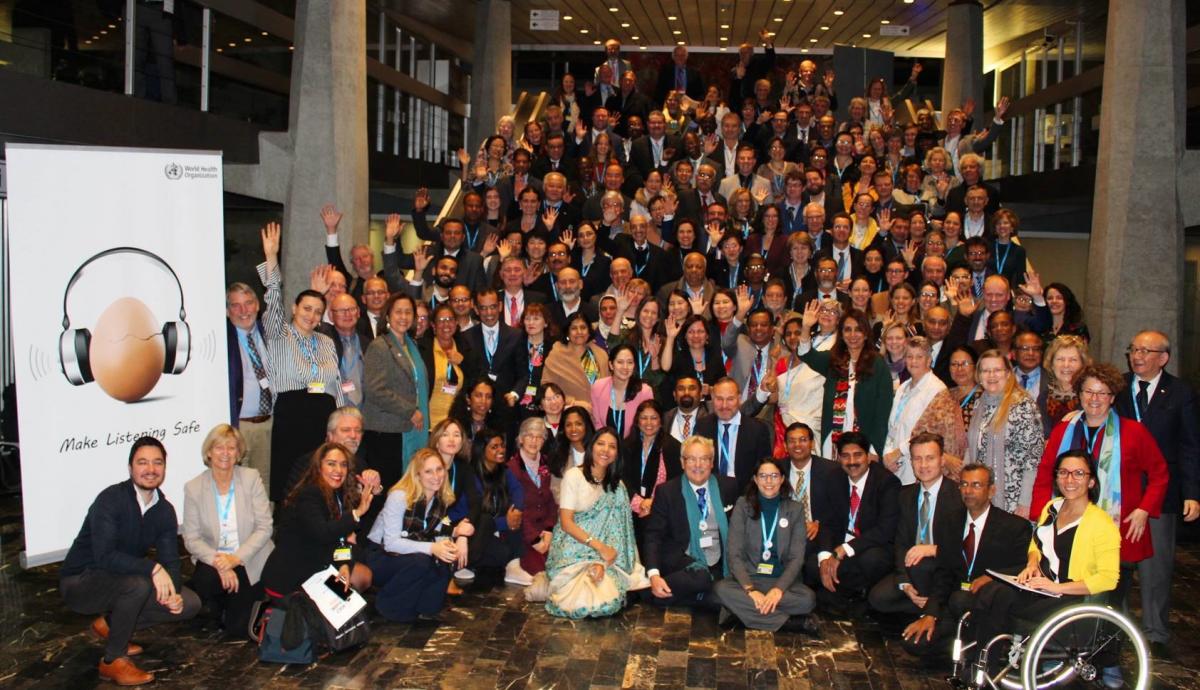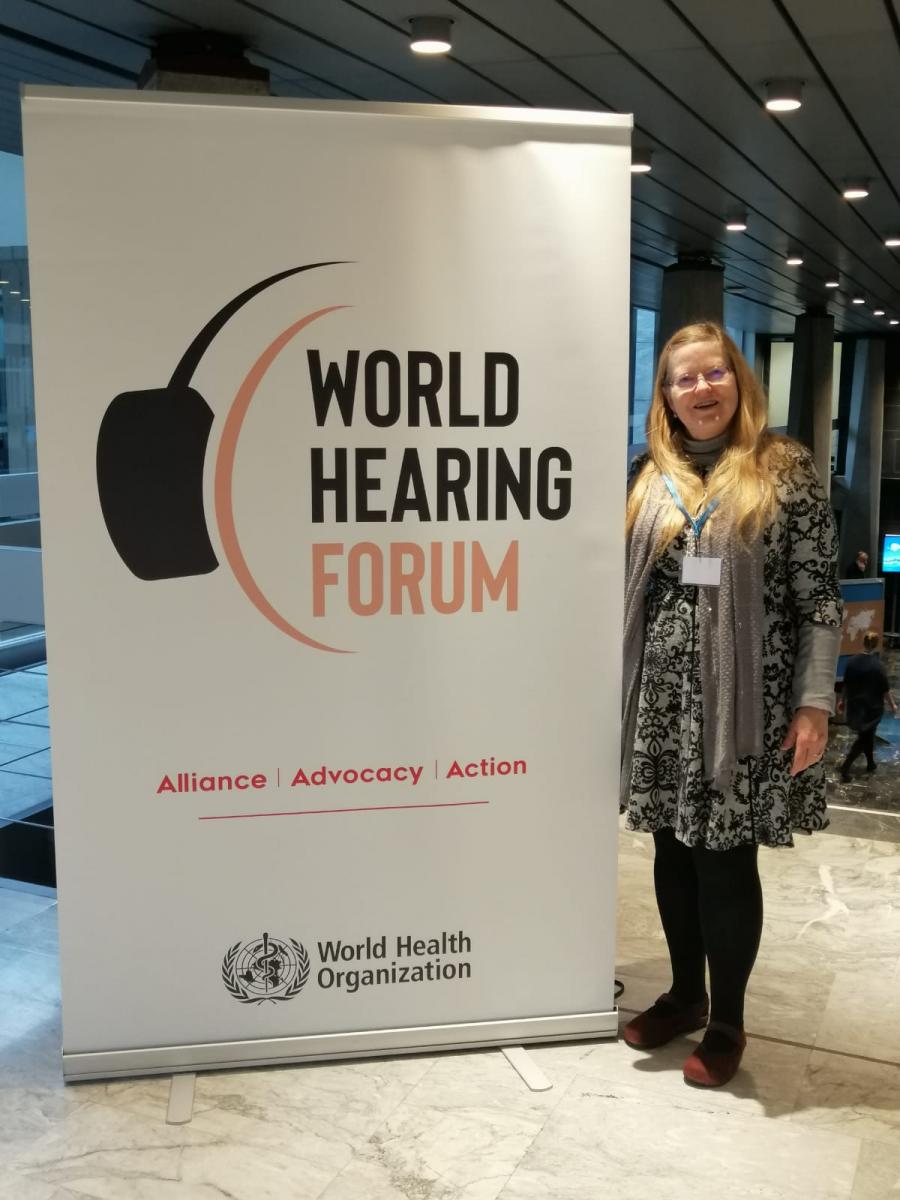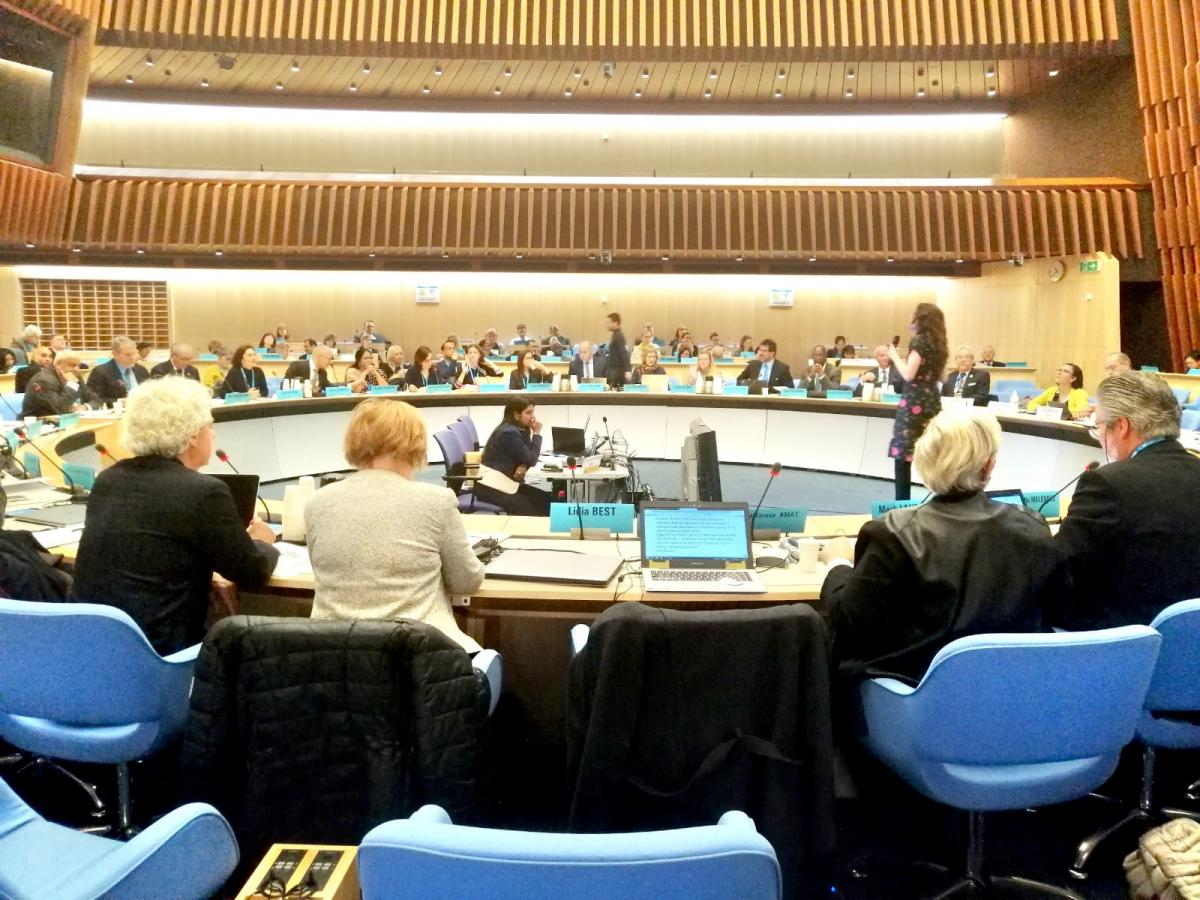
Why would any organization hesitate to sign on the dotted line after receiving an invitation to become a member of the World Health Organization’s first World Hearing Forum? So, it was with the American Academy of Audiology and ~300 other World Hearing Forum (WHF) members comprised of global governmental and non-governmental organizations and including disabled people’s organizations/user groups, charitable/service organizations, professional societies, parent groups, regional fora (with defined structure), private sector entities (international business associations, philanthropic foundations, and academic institutions) that we all recently met.

the American Academy of Audiology
represents the Academy as a member
of the World Hearing Forum.
As stipulated in the formal application process, all member applicants must
- Work actively in the field of ear and hearing care and commit to the implementation of the World Health Assembly (WHA) Resolution 70.13.
- Have actions/activities in the public health domain of ear and hearing care.
- Have a proper governance structure and transparent funding and reporting systems.
- Engage actively in the work of the Forum, including participation in the annual Member Assembly of the Forum, and be in good standing and reputation in the field.
First, it is crucial to keep in mind the historic 2017 WHA resolution 70.13 (May 31), which was implemented to recall the 25-year-old resolution of the WHA 48.9 (1995), as well as the World Report on Disability (2011). The newer resolution specifically requested the WHA Director General to
- Prepare a World Report on Ear and Hearing Care based on best-available scientific evidence.
- Develop a toolkit with necessary technical support in
- Collecting data
- Creating national strategies, specifying how prevention of hearing loss can be integrated into health-care programs
- Raising awareness
- Screening for hearing loss and ear diseases
- Organizing training in and provision of assistive technologies
- Collaborating with all stakeholders with the aid of reducing hearing loss
- Developing and promoting safe-listening standards
- Undertake advocacy through World Hearing Day on March 3 each year.
Lastly, the resolution also requires that a report on the progress in implementation of WHA Resolution 70.13 be made to the World Health Executive and General Assembly.
Realistically, should ear-and-hearing-care stakeholders expect the Director General of the WHA to complete and report on the specific requests detailed in WHA 70.13? The answer is “yes!” But…while the 2017 resolution would appear to be an insurmountable laundry list of action items to complete well in advance of the World Report on Hearing, it will be unveiled in Geneva at WHA on May 18-23, 2020, thanks to a core group of global ear-and-hearing-care stakeholders who began with a plan almost a decade ago.
A phrase of the resolution especially echoes in my mind: “intensify collaboration with all stakeholders.” Who are those “stakeholders,” you ask? But, of course, current and future global members of the WHF. Inspirationally, almost 300 of ~180 member groups joined with the American Academy of Audiology in preparation and deliberations in WHO’s Executive Board Room on December 4-5, 2019, to meet the WHO’s defined objectives for our first WHF Membership Assembly. Objectives include: align members with the vision and mission of the WHF; propose advocacy action plan for the next two years; exchange views amongst members; and explore possibilities for resource mobilization.

Did we complete our objectives in those two early days of December? It’s a journey! We certainly synergized with many forward strides and empathic dialogue as a global community through group work topics: Make Listening Safe; World Hearing Day; Champions for Hearing; and World Report on Hearing.
Without a doubt, the work continues within the ear-and-hearing-care community awaiting in positive anticipation of a boundless future, as we all speak with one unified global voice and purpose as the WHF.
What will the first World Report on Hearing look like when presented to the WHA in five months? It will be the most comprehensive report with the best available scientific evidence that the unified global stakeholders can offer regarding ear and hearing care.
Is it too late to apply for a two-year renewable membership of the World Hearing Forum? No! It’s never too late to fill a critical gap by bringing the various perspectives of a “collective vision to advocacy and collaboration”…“through networking and sharing knowledge, skills, and experiences.” After all, the journey of a thousand miles begins with the first step.
Jackie Clark, PhD, is a past president of the American Academy of Audiology and represents the Academy as a member of the World Hearing Forum.
Related Posts
Havana Syndrome Sparks Debate Among Experts
Audio-vestibular symptoms are gaining national attention and sparking debate amongst professionals and the public. A CBS 60 Minute report on Sunday, March 31, revisited Havana…
ADHD in Children in the United States
Audiologists sometimes see patients who also present with a diagnosis of attention-deficit/hyperactivity disorder (ADHD). Reuben and Elgaddal (2024) reported the percentage of children in the…
Remote Diagnostic Hearing Assessment in School-Entry-Aged Children
Even before the COVID-19 pandemic, telehealth and remote audiology visits were increasing in frequency and popularity. D’Onofrio and Zeng (2021) reported that telemedicine was adapted…


